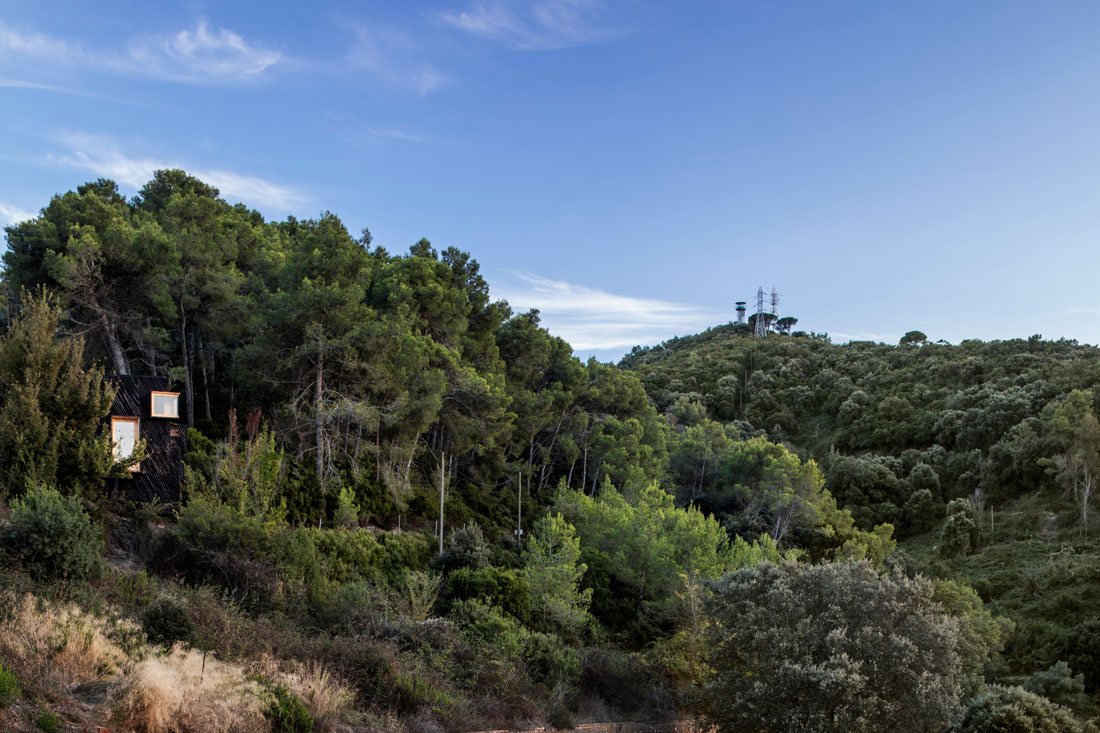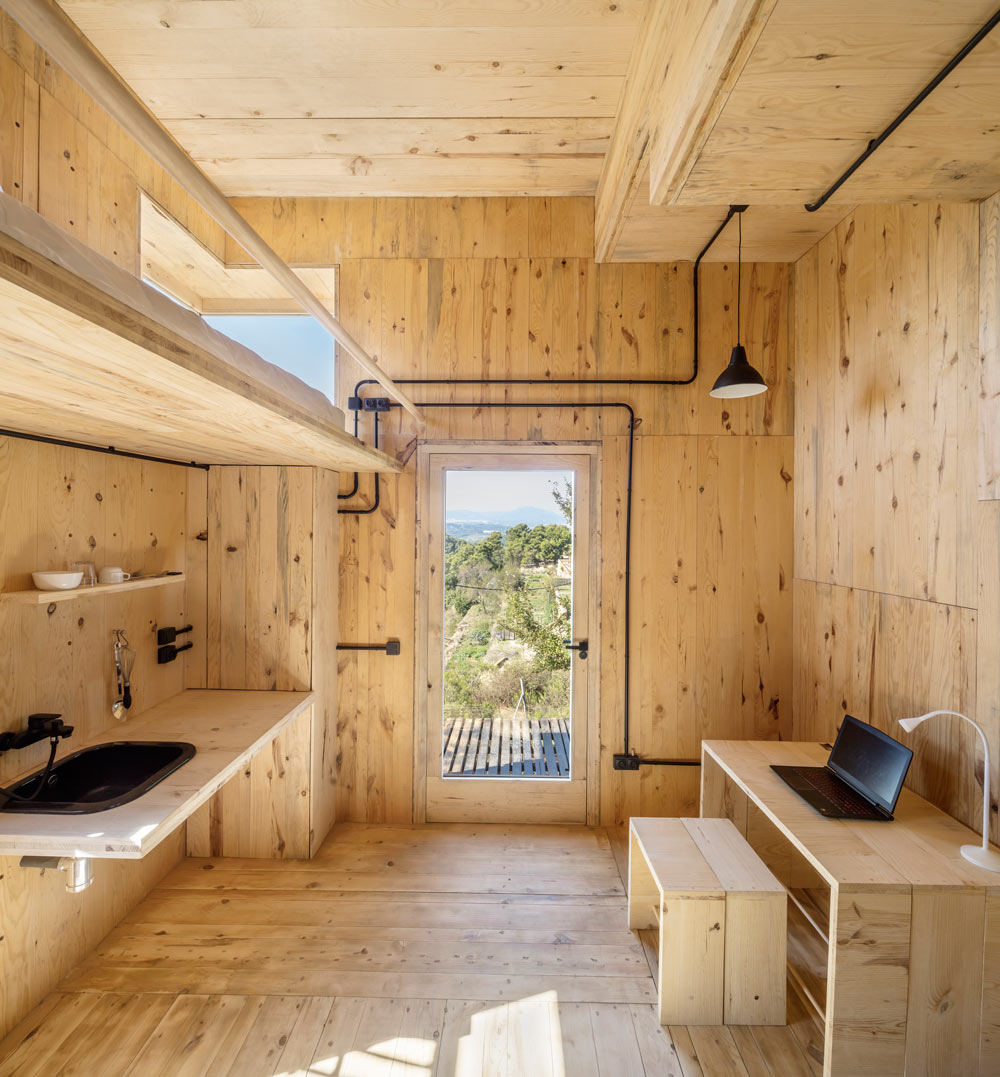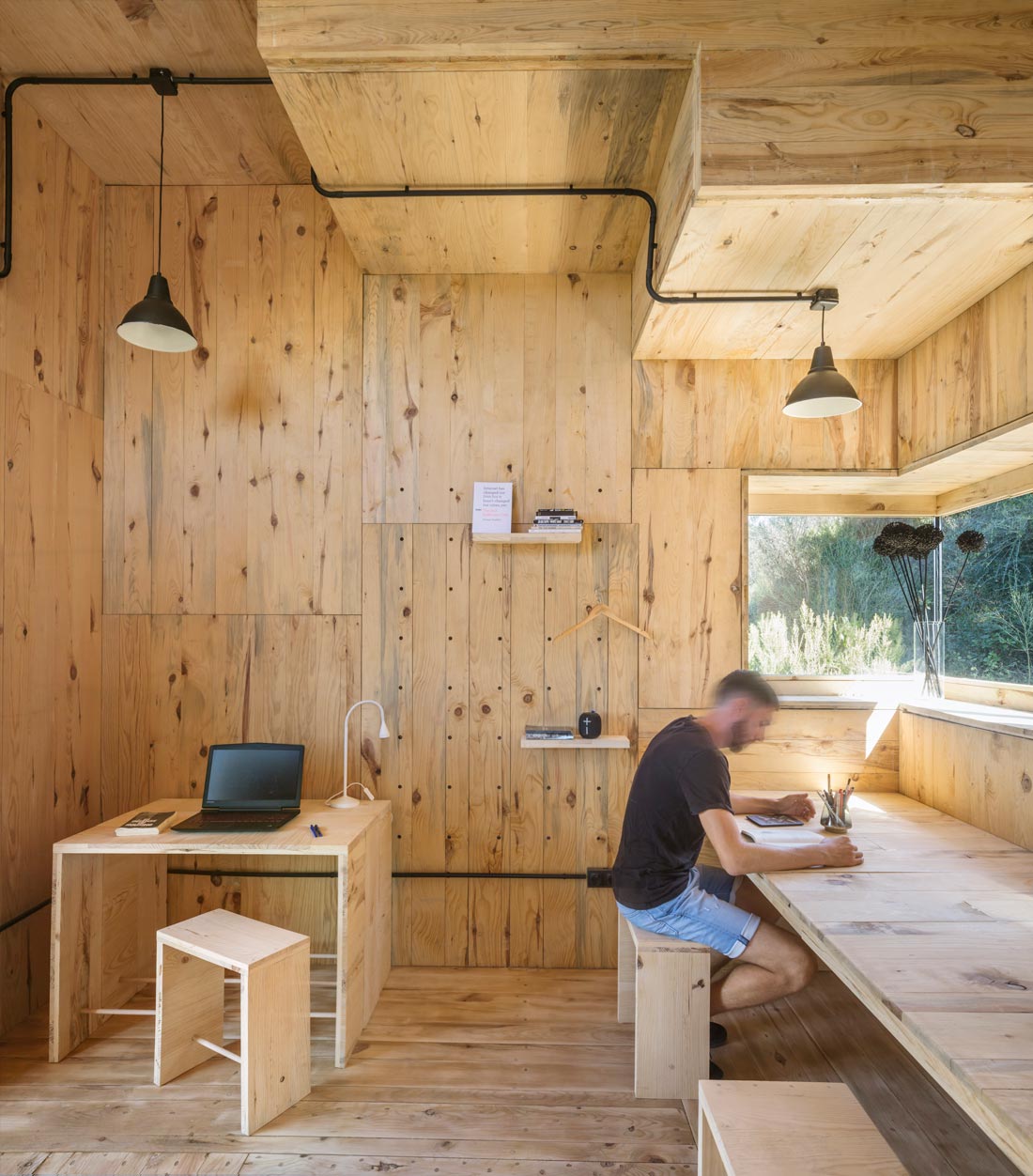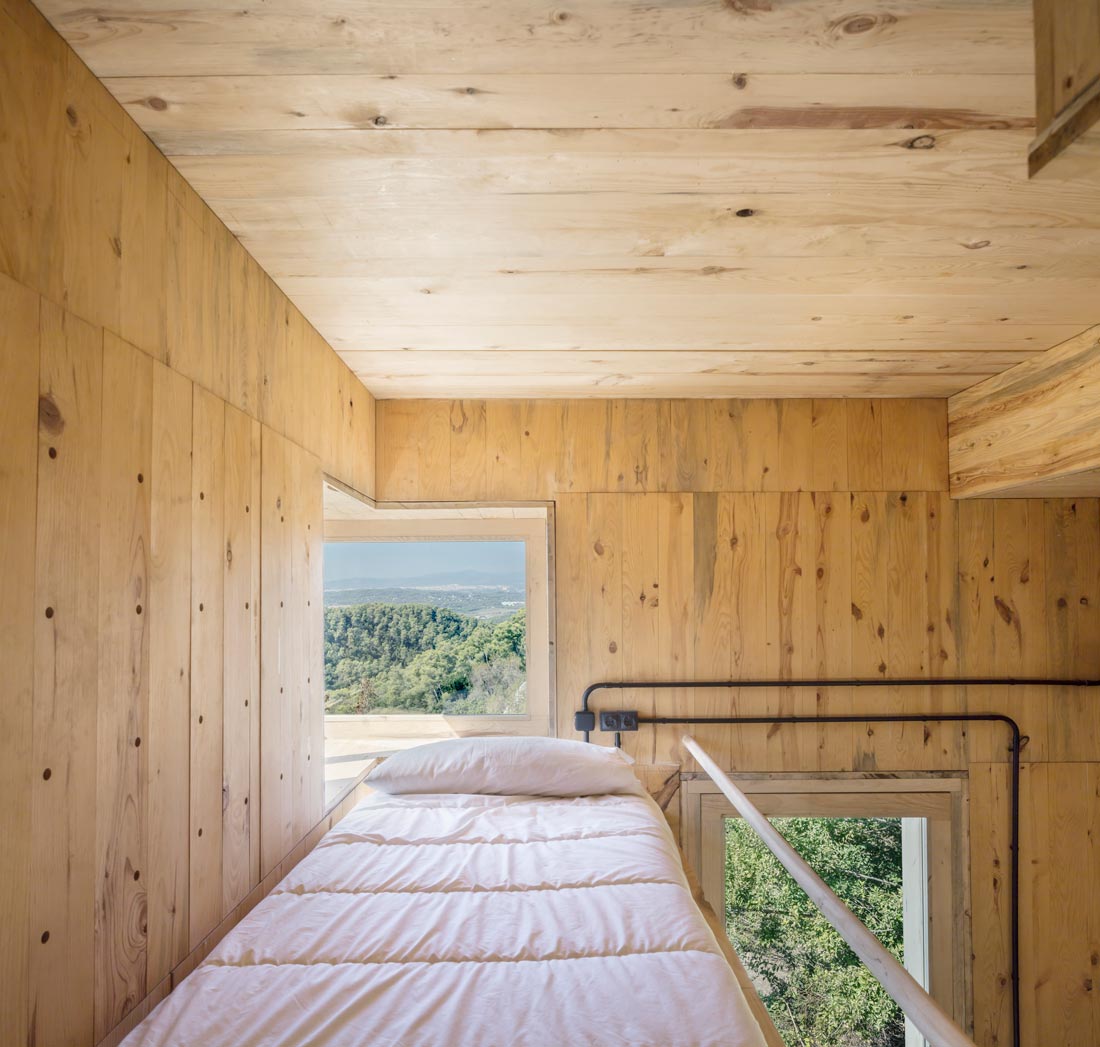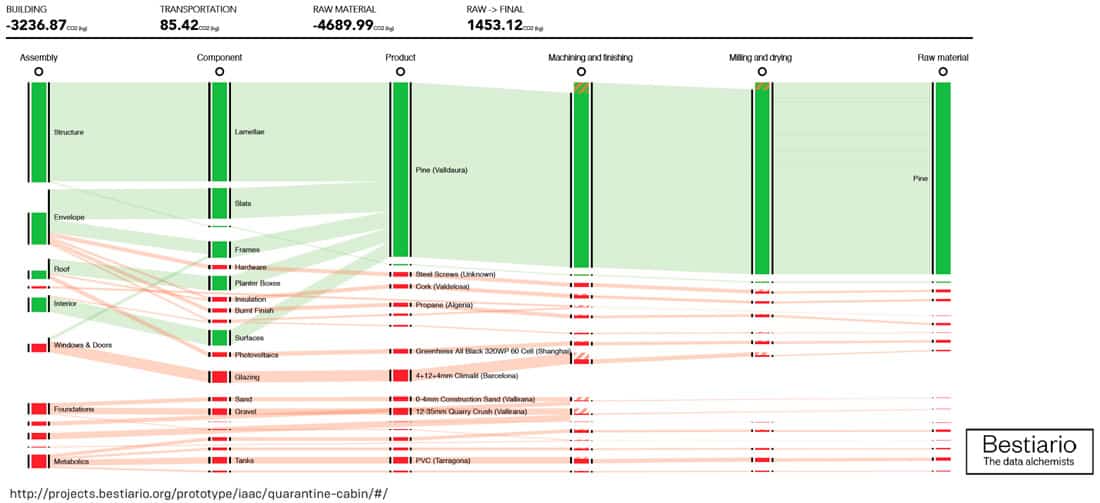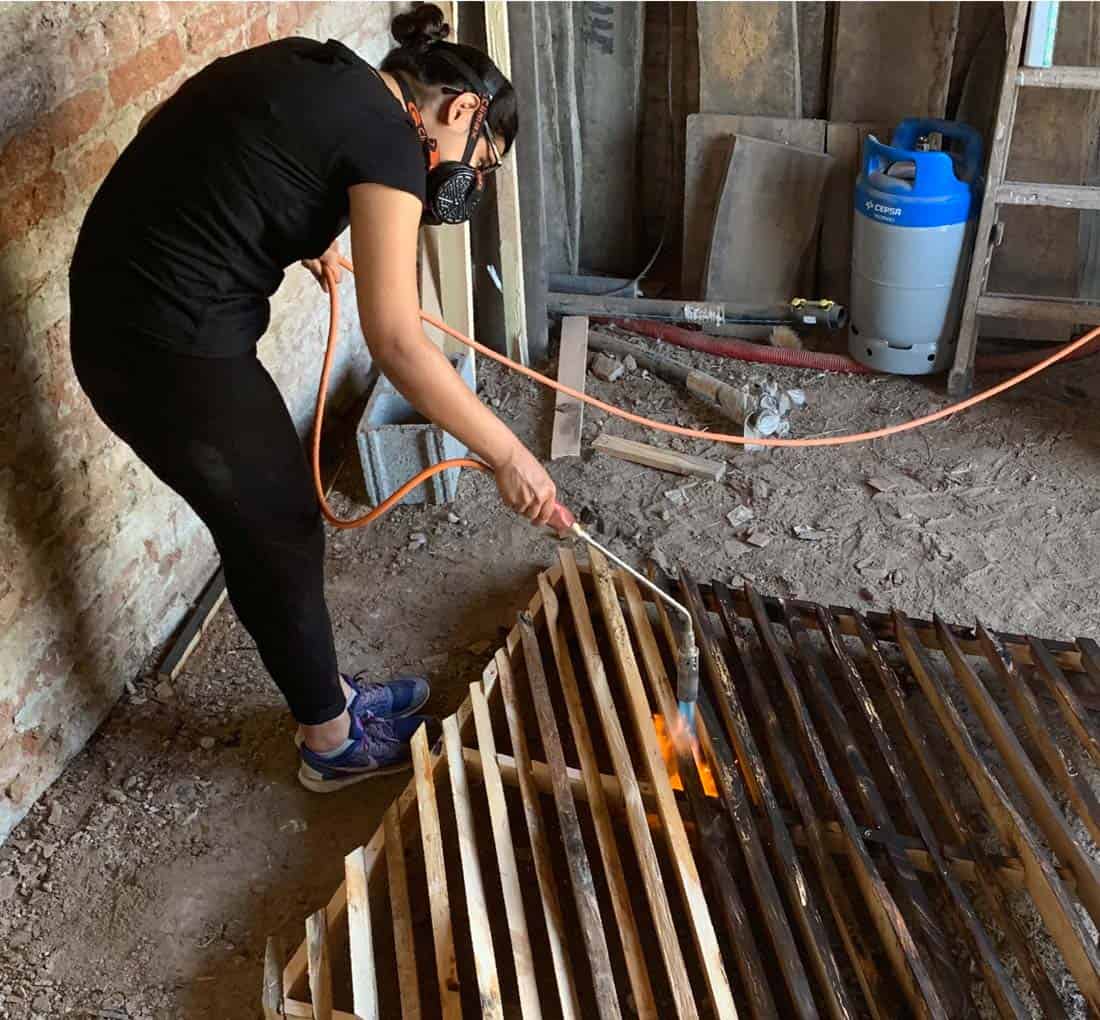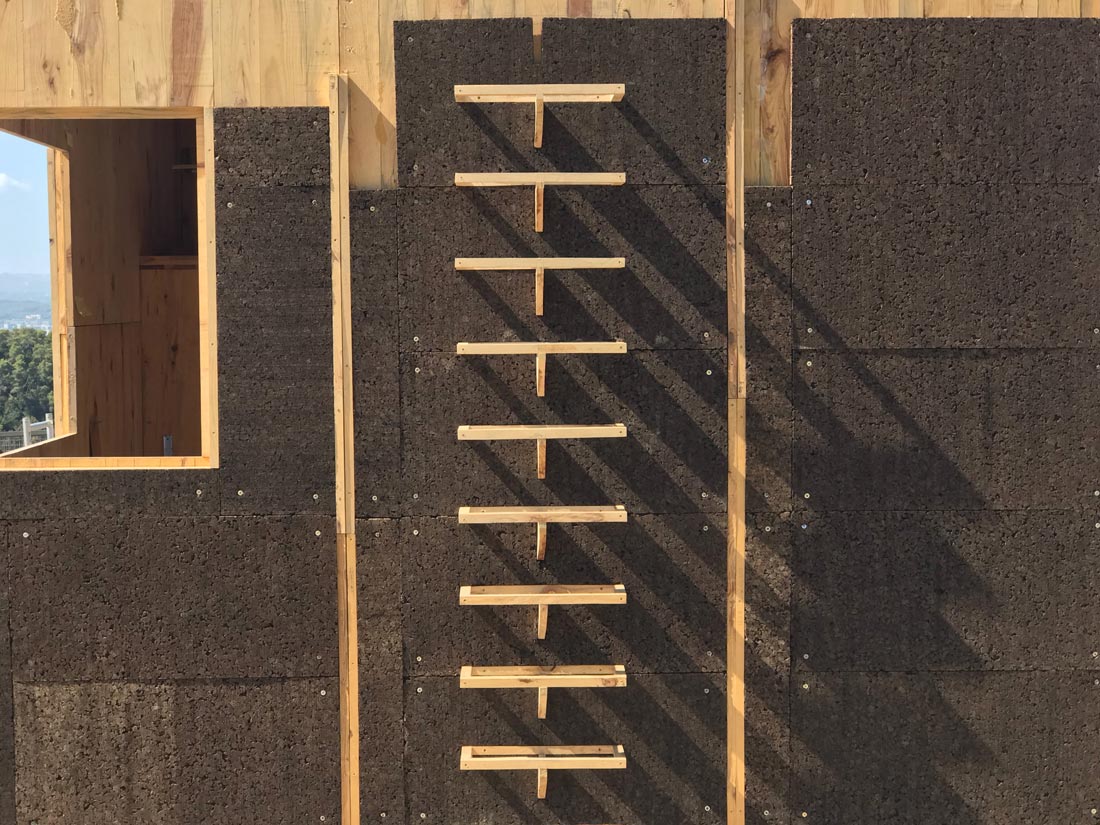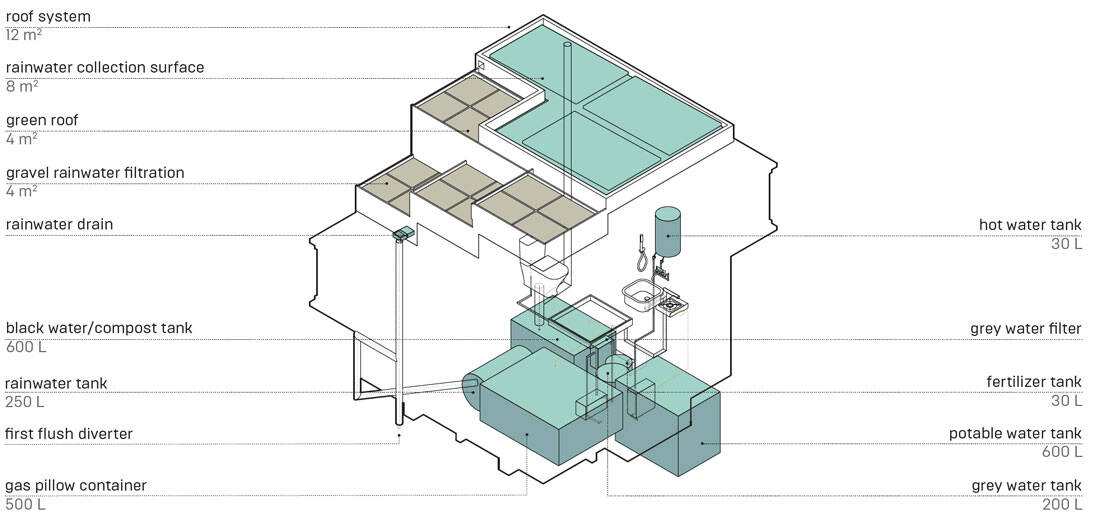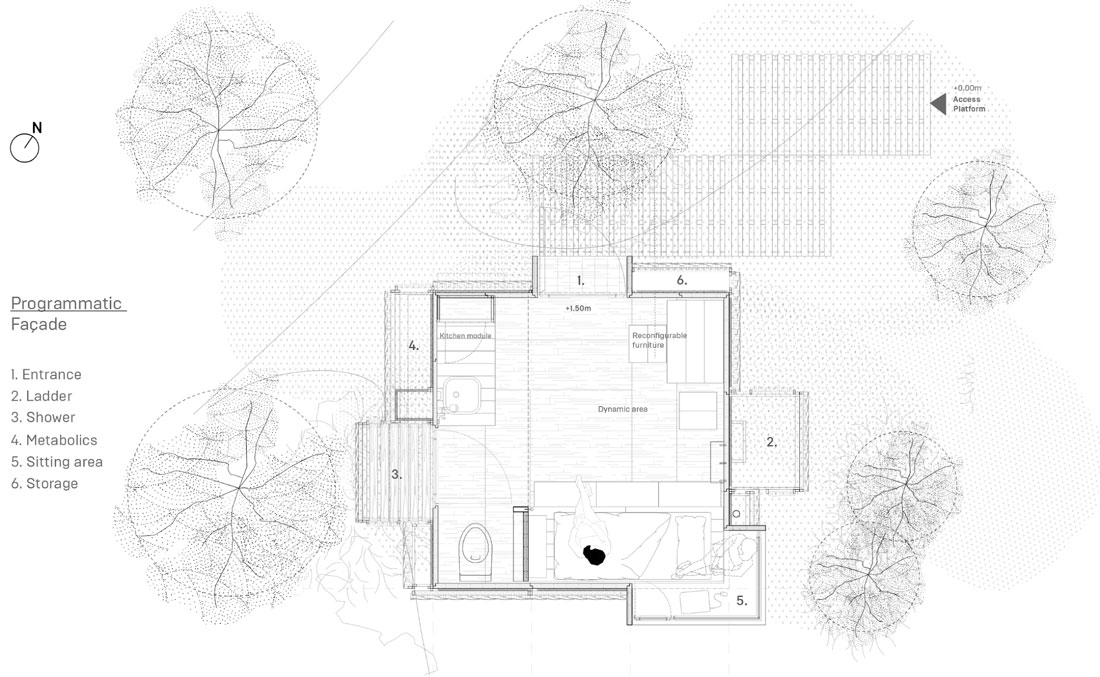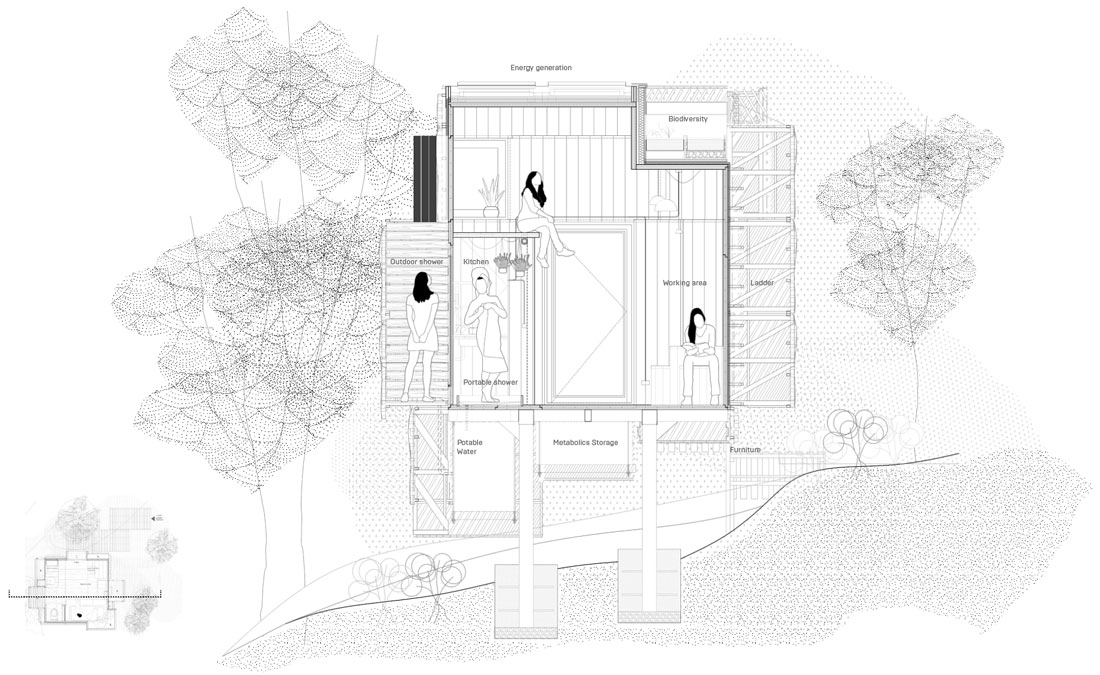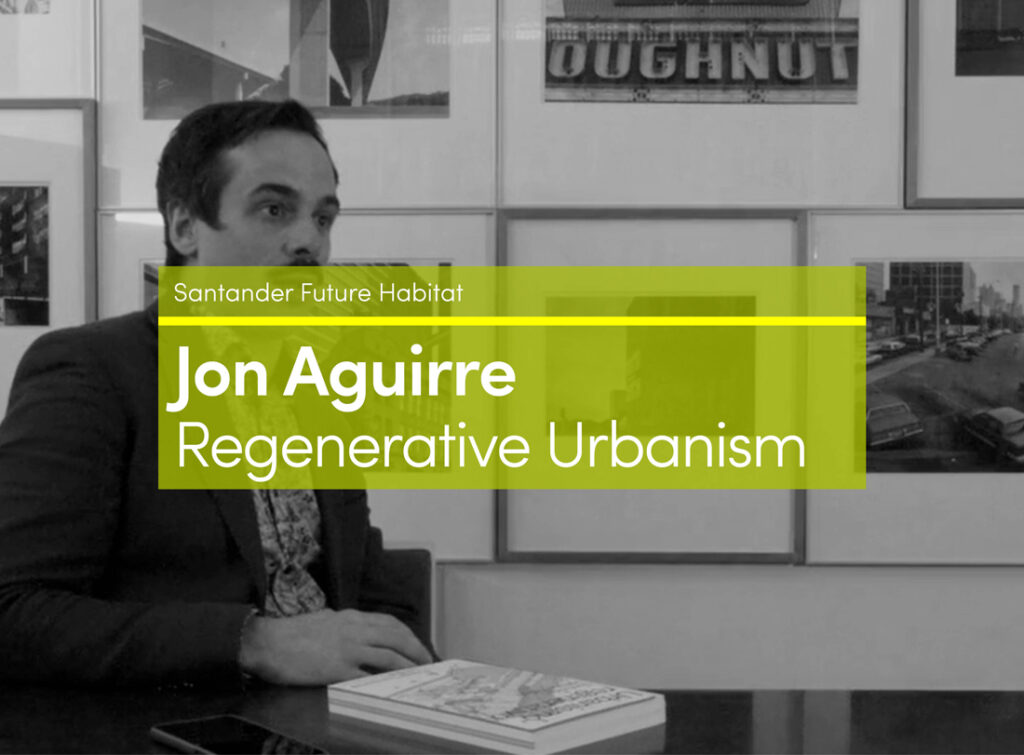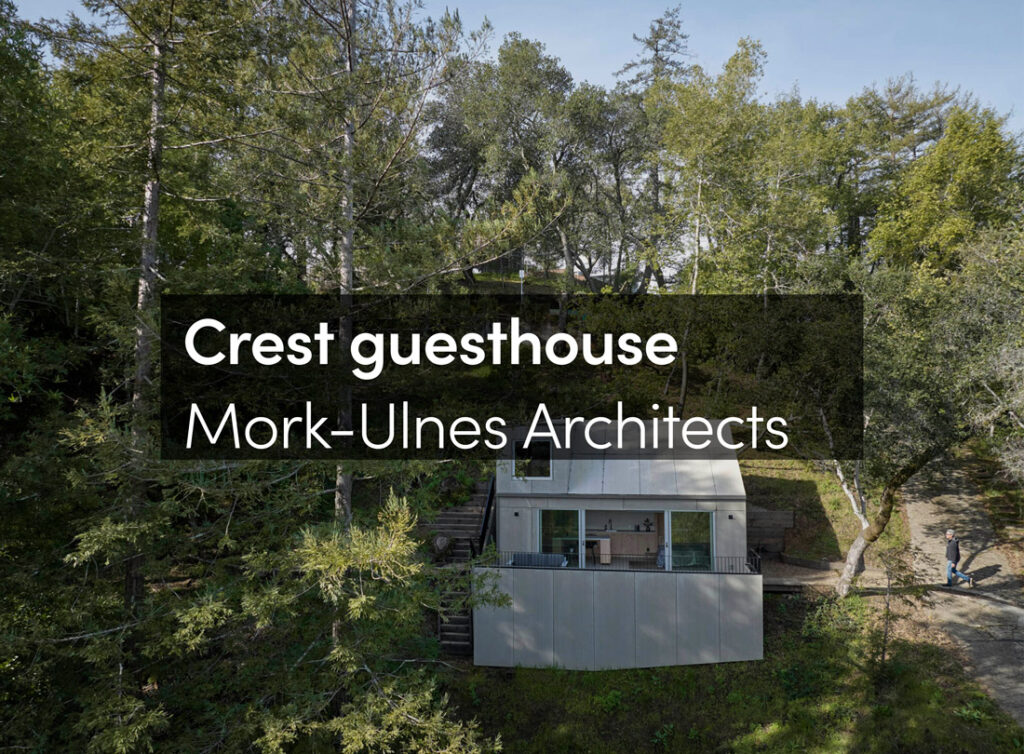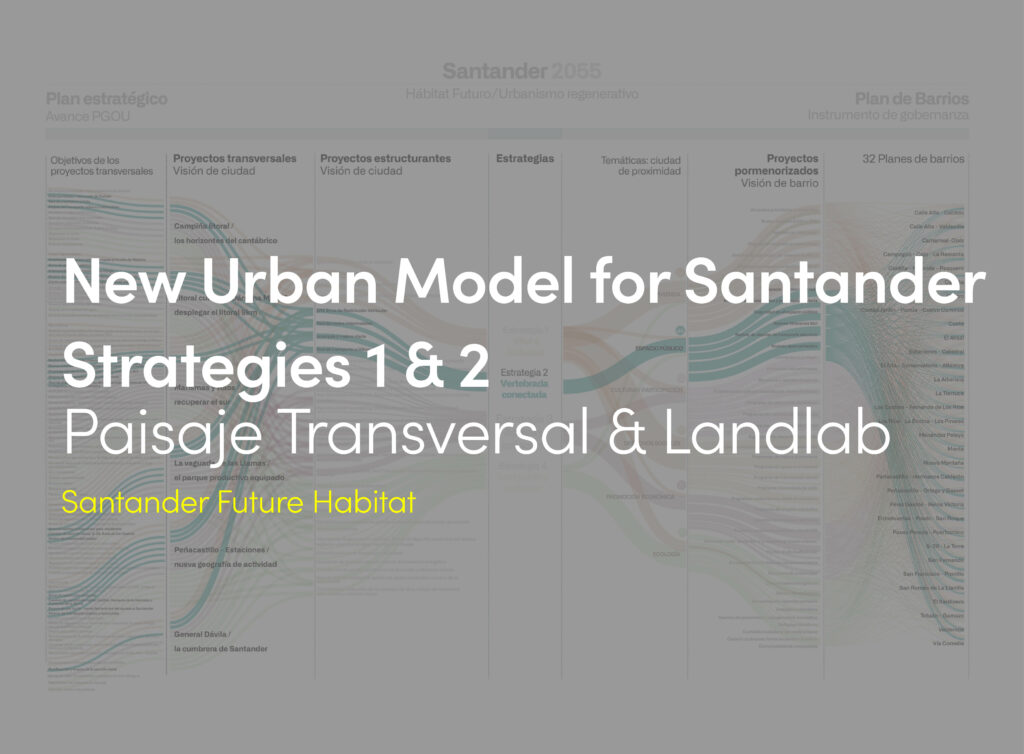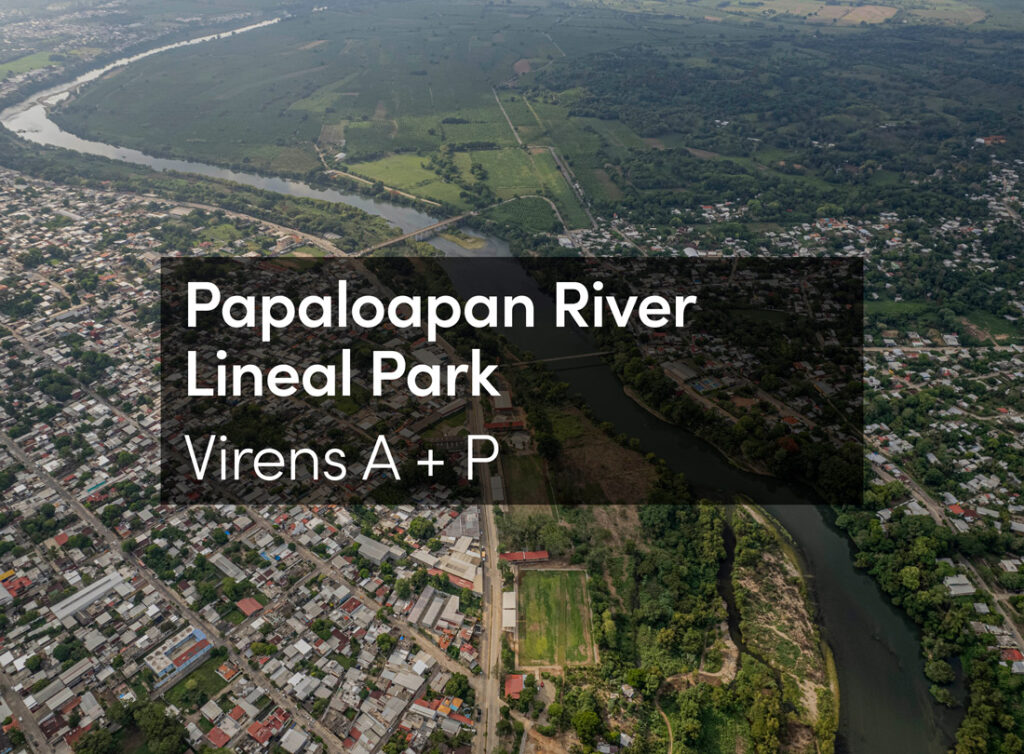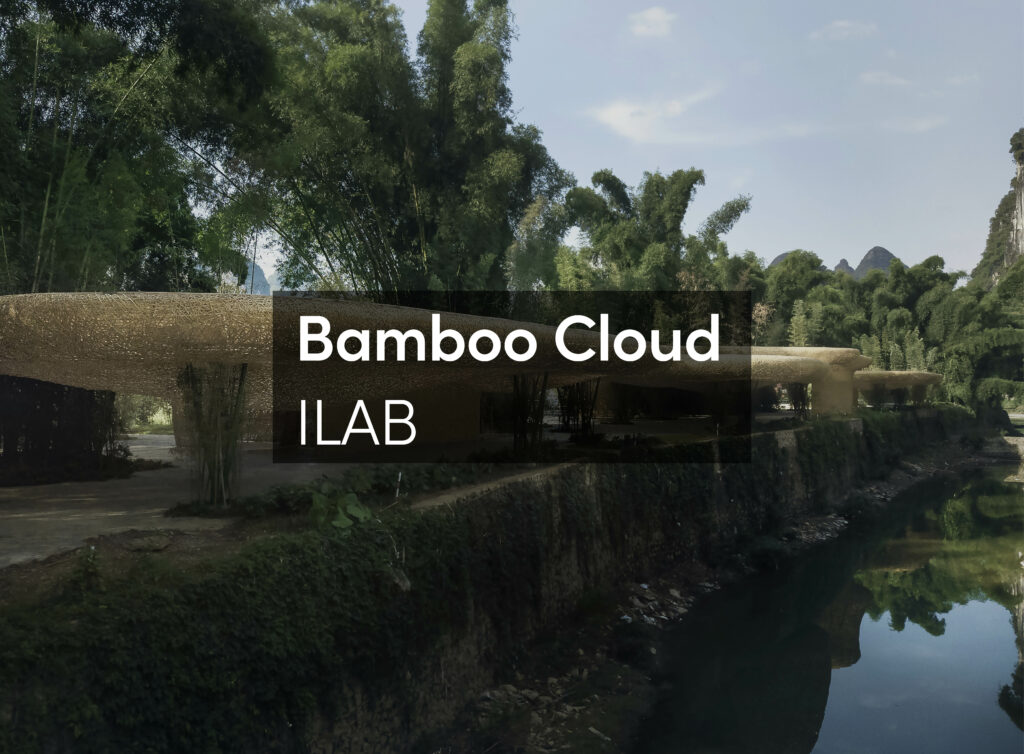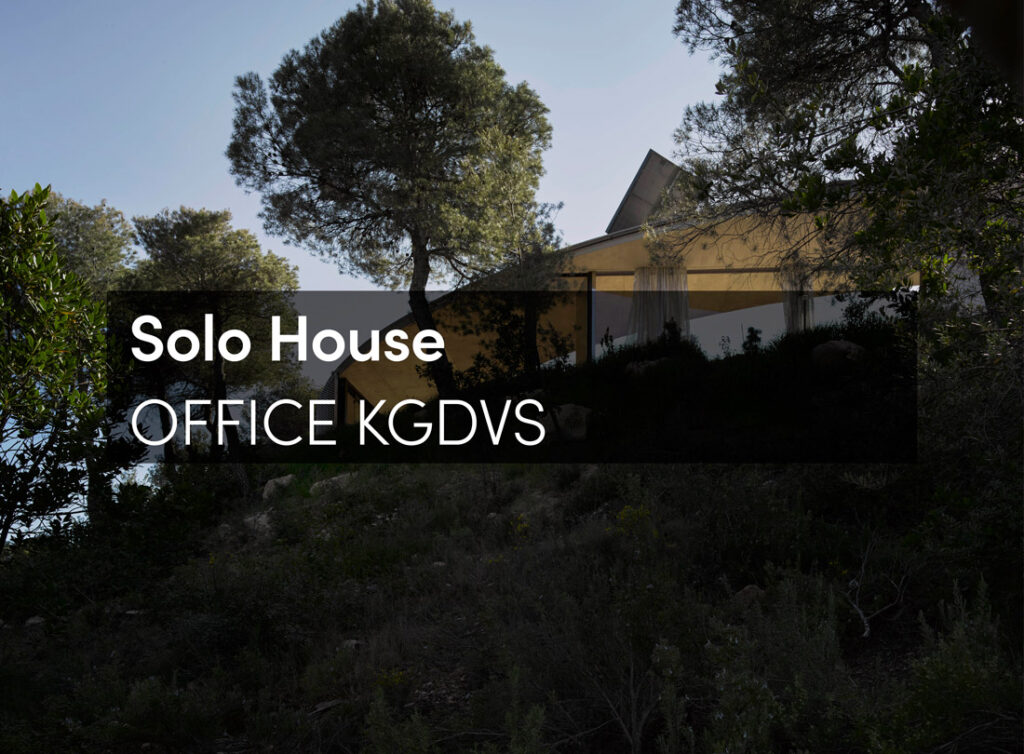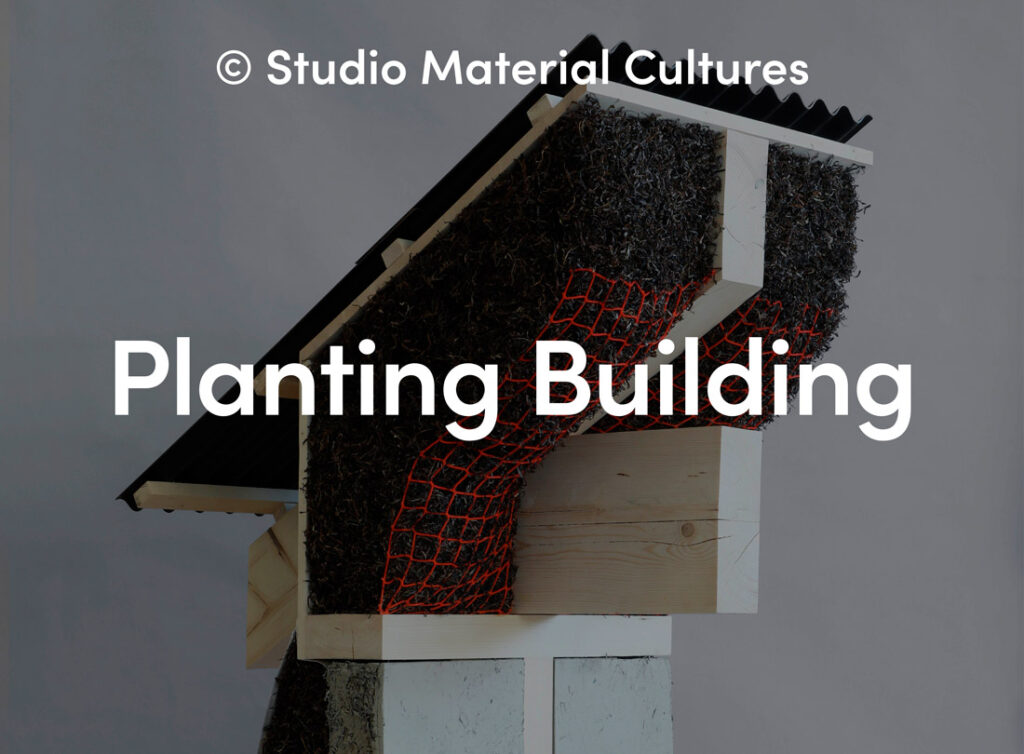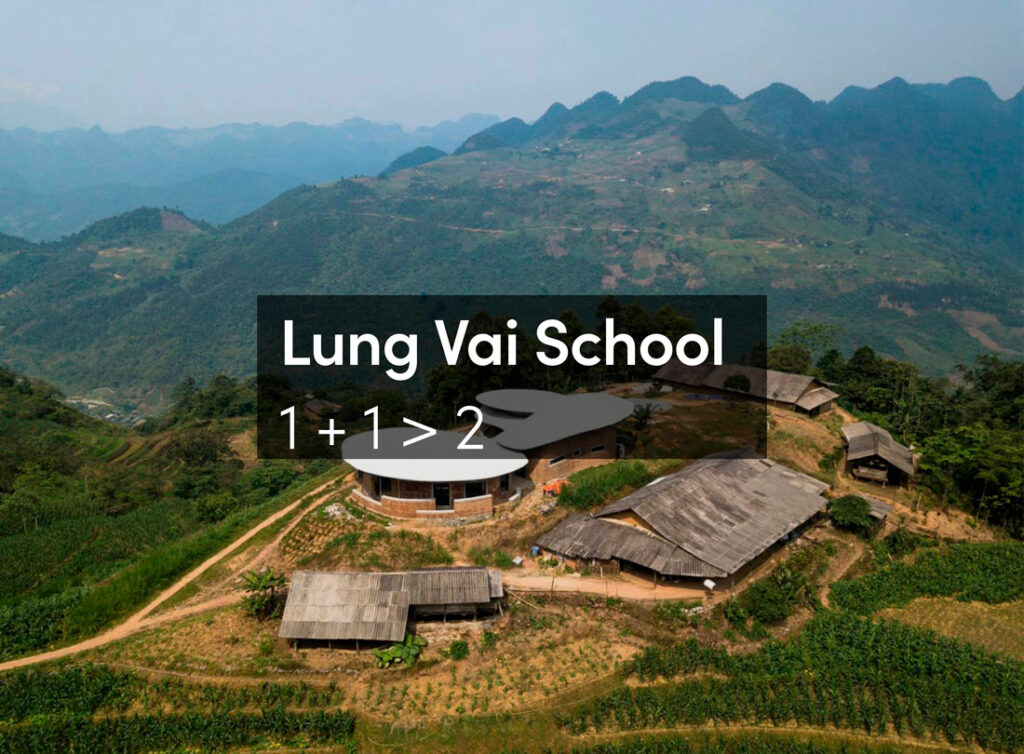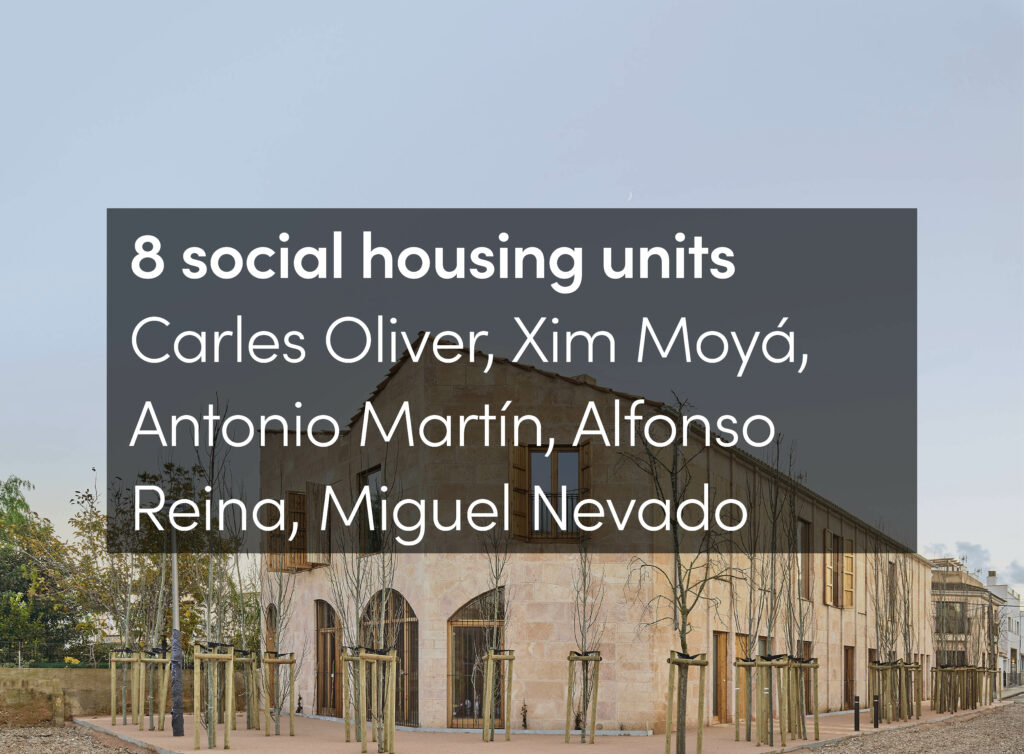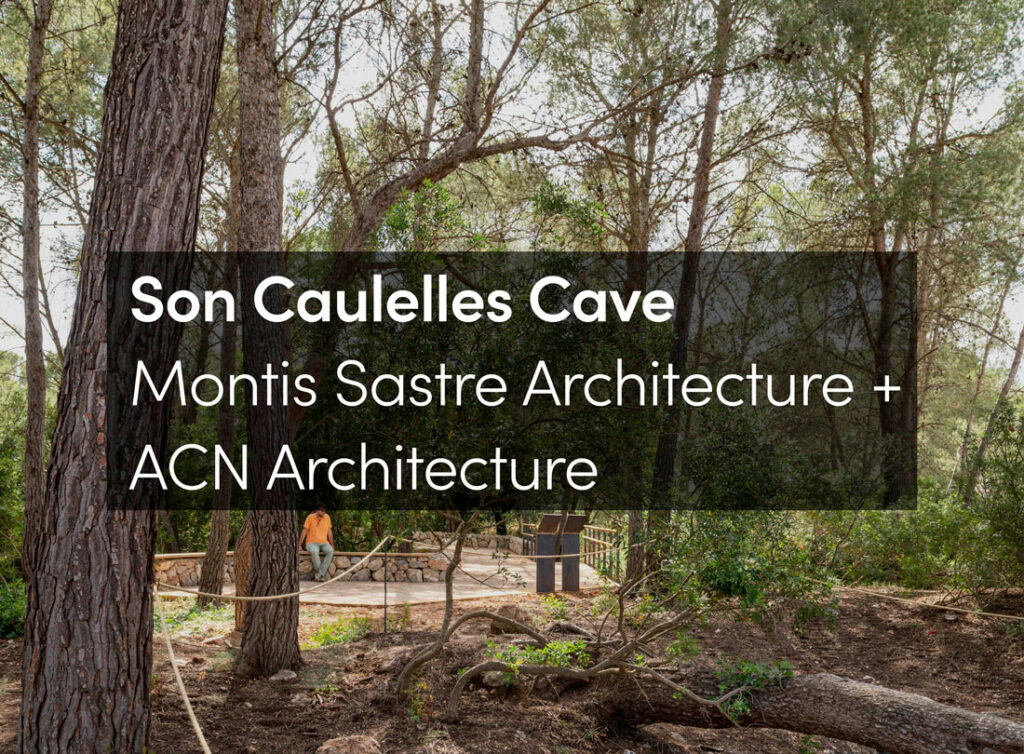The Voxel is a prototype of an advanced ecological building constructed with natural km.0 materials and industrialized techniques in the natural park of Collserola (Barcelona, Spain). The project proposes a space for confinement as an architectural solution to the COVID-19 pandemic.
Zero Km Materials
Designed as a quarantine cabin, the house can accommodate one occupant for 14 days, providing for all material needs during self-confinement. The Voxel, or volumetric pixel, is a 12 square meter cross-laminated timber (CLT) structure made from Aleppo Pine (Pinus halepensis) that was milled, dried, processed, and pressed on site at Valldaura. All timber used in the project was harvested within a radius of less than 1 kilometer from the construction site.
Based on a sustainable forest management plan approved for Collserola, a certain forest volume can be obtained each year to encourage the growth of smaller trees and biodiversity, because forest biomass grows by 3% each year and growing trees absorb more CO2. The project responds to the interest in promoting a new generation of green buildings using structural cross-laminated timber (CLT), which is suitable to become a key material for constructing buildings that combat climate change.
Structural Cross-Laminated Timber (CLT) the Future of Building
To supply the raw materials for the project, 40 pine trees were harvested, cut into 3 cm boards, and stacked to dry for three months. After they reached the proper humidity level, each board was taken into the Valldaura Labs carpentry workshop to be processed into hundreds of pine lamellas. Each lamella was then encoded into a specific sequence, tagged, and pressed into more than 30 structural CLT panels, which were assembled into a 3.6 x 3.6 m cube.
In a feat of obsessive commitment to locality and understanding the material flows of architecture, every lamella of every panel was tracked and traced, ensuring that every single wooden element of the house can be accurately traced back to the point where the tree it came from once stood. The panels were held together metal-free with lap joints and wooden dowels, inspired by a commitment to use less carbon-intensive materials. The structure was then wrapped in a layer of cork insulation and mounted with an innovative series of rain-screen panels made from waste material created during the CLT production process. While processing raw pine boards to obtain perfectly rectangular lamella, the organic edge of the board usually goes to waste.
By reimagining this linear cycle of material selection and disposal into a more circular form, these off-cuts were turned into a façade that showcases the organic complexity of the tree that is usually hidden in most wooden constructions. By advancing the design a step further, each off-cut was parametrically organized into a gradient that corresponds to functions within the cabin.
Certain sections of the skin also extrude away from the cabin corresponding to metabolic components like water tanks and an outdoor shower. The roof of the cabin features a series of garden boxes with elaborate joints milled with computer-numerical-control (CNC) machinery (no screws, no glue), which holds a variety of local plants and funnels rainwater into a collection tank below. Cork insulation was placed over the wooden panels, and a burnt wooden skin was placed over that, using the Japanese technique shou sugi ban, which protects the building from the rain.
Circular Metabolism
Valldaura Labs is known for its interest in exploring the limits of self-sufficiency, trying to provide for all vital needs without relying too heavily on the importation of goods or services. The Voxel strives for similar independence to achieve its program as a quarantine cabin, made possible by a comprehensively designed water-energy-waste scheme.
The cabin is equipped with three solar panels and independent battery storage, specifically designed to power the lighting and devices for a single resident. The water system incorporates both rainwater collection and grey-water recycling, as well as black-water treatment within a self-contained biogas system that generates usable cooking or heating fuel and sanitary fertilizer as by-products. Now that the construction is complete, The Voxel offers visceral proof of a forthcoming advanced and ecological architectural paradigm that uses hyper- local materials and industrialized techniques.
